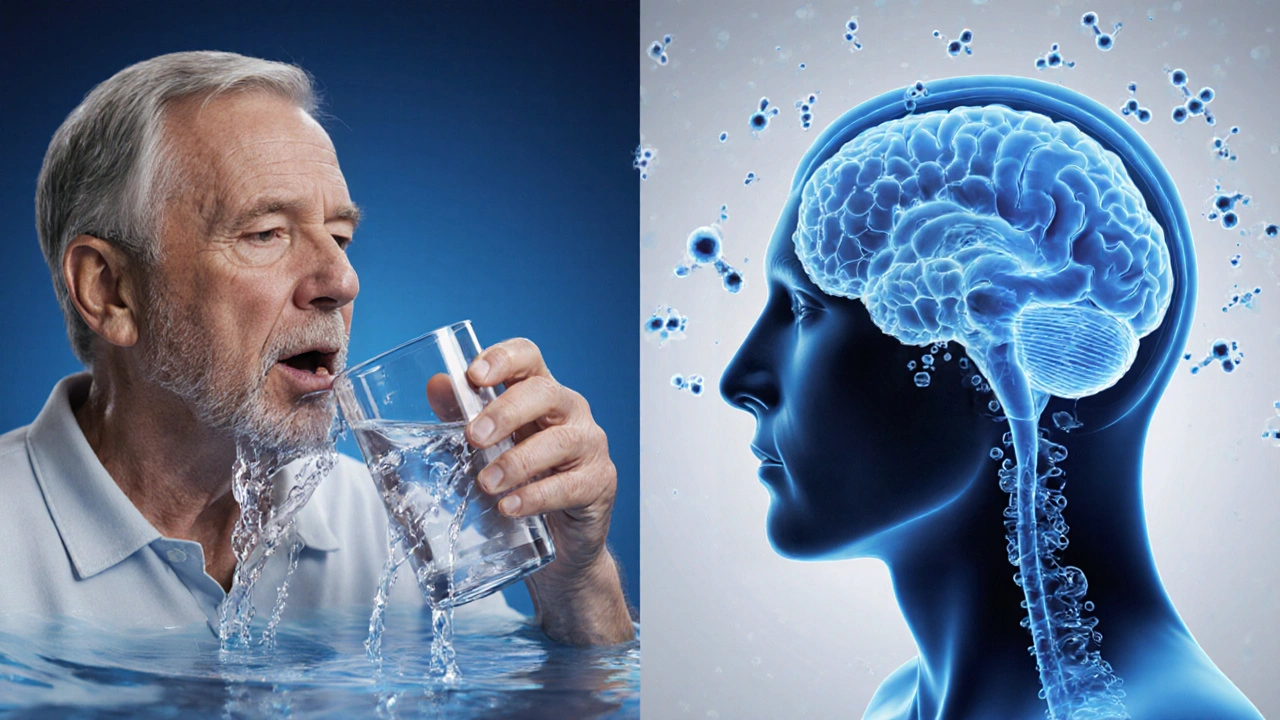Vasopressin Deficiency: What You Need to Know
When dealing with vasopressin deficiency, a condition where the body lacks enough antidiuretic hormone, causing excessive urine output and electrolyte imbalance. Also known as ADH deficiency, it can turn everyday hydration into a constant worry.
Key aspects of vasopressin deficiency
Understanding the problem starts with a few linked ideas. Antidiuretic hormone, often called ADH, is the chemical messenger that tells kidneys to reabsorb water. Without enough ADH, the kidneys let too much water pass out as urine. This shortfall directly leads to increased urine output, a hallmark of the condition. Diabetes insipidus, the clinical picture of extreme thirst and dilute urine is actually a symptom set that stems from vasopressin deficiency. Another piece of the puzzle is Hyponatremia, low sodium levels that can arise when water balance is off. When ADH isn’t doing its job, the body can swing between dehydration and diluted blood, both of which affect sodium and overall health.
Why does this matter for everyday medication choices? Many drugs mentioned in our resource library—like certain diuretics, ACE inhibitors, or even some over‑the‑counter antihistamines—can tip the water‑sodium scale. For instance, a post about medication‑induced angioedema explains how ACE inhibitors may lower blood pressure and indirectly influence ADH release. Anticoagulants such as warfarin, covered in another guide, require careful monitoring of fluid status because sudden shifts can affect clotting factors. Understanding these connections helps you spot when a prescription might amplify vasopressin‑related issues.
Diagnosing the deficiency usually involves blood tests for sodium, urine concentration checks, and sometimes a water‑restriction test to see if ADH levels rise as expected. Treatment often means replacing the missing hormone with a synthetic version called desmopressin, plus lifestyle tweaks like sipping water throughout the day instead of gulping large amounts at once. Keeping an eye on sodium intake—especially if you’re using supplements like Nikko Maple or Male Fern, which appear in our supplement reviews—helps avoid the swings that can trigger hyponatremia.
Below you’ll find a curated set of articles that dive deeper into the meds, supplements, and health conditions that intersect with vasopressin deficiency. Whether you’re looking for safe ways to buy generic drugs, tips on managing side effects, or a clearer picture of how hormone balance ties into everyday health, the collection offers practical steps you can act on right away.
Ready to explore the specifics? Scroll down to see how each topic connects to vasopressin deficiency and discover actionable advice you can apply today.

